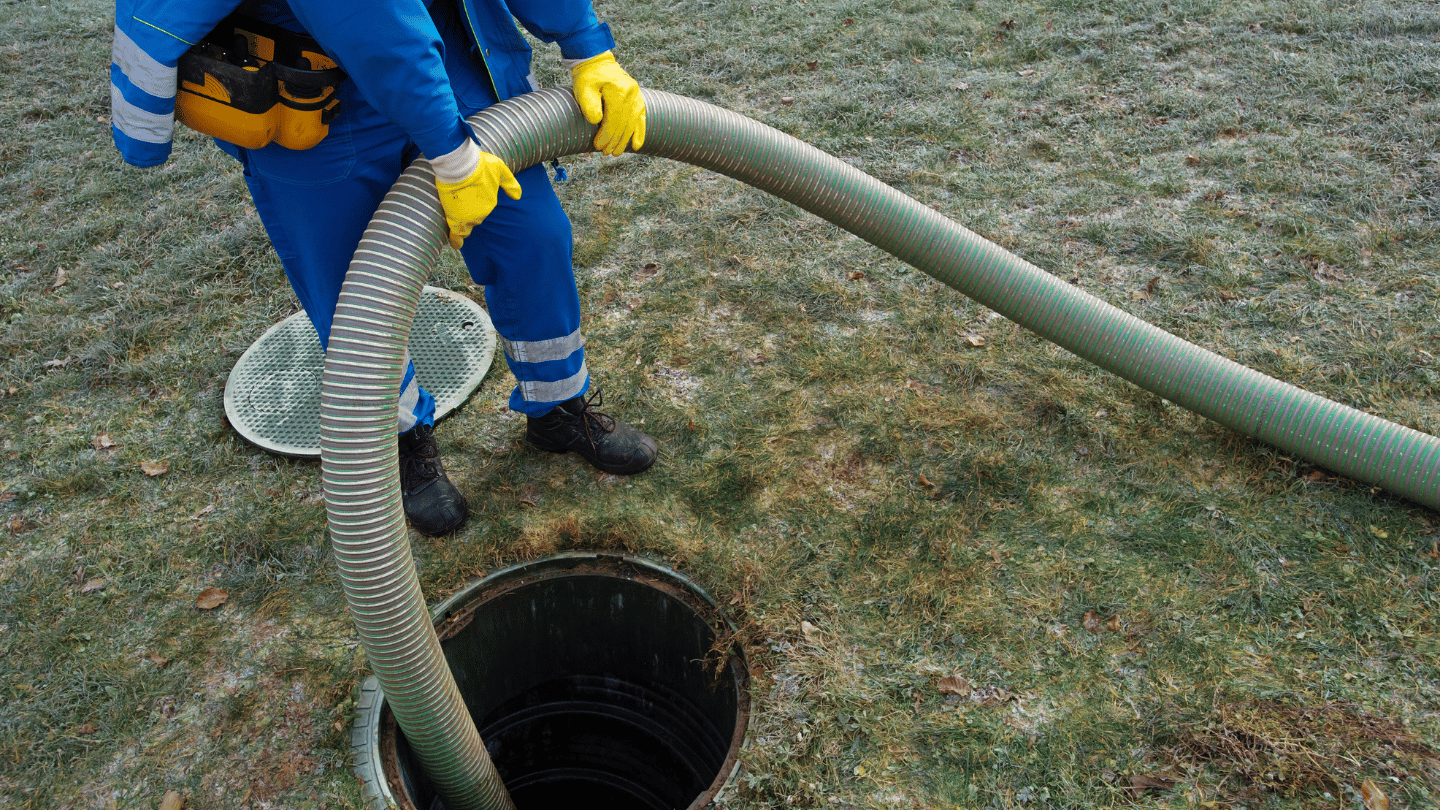PH: (305) 842-3216
For English call or Text this number
How Often Do Most Septic Tanks Need to Be Emptied?
This is a subtitle for your new post

Septic tanks are an essential part of many households, especially in rural areas where there is no access to municipal sewage systems. Regular maintenance, including timely emptying, is crucial to ensure that septic systems function effectively and avoid costly repairs or replacements. But how often should a septic tank be emptied? This question doesn't have a one-size-fits-all answer, as it depends on several factors. Here’s a comprehensive guide to help you understand the timing for emptying your septic tank.
Factors Affecting the Frequency of Emptying
- Household Size The number of people living in a home significantly impacts how quickly a septic tank fills up. A larger household generates more wastewater, which means the tank will need to be emptied more frequently. For instance, a family of four will generally need their septic tank emptied more often than a couple or a single person.
- Tank Size The size of the septic tank is another critical factor. Larger tanks have a greater capacity and can hold more waste before needing to be emptied. Typical residential septic tanks range from 1,000 to 2,500 gallons. Knowing your tank’s capacity can help you estimate how often it needs to be serviced.
- Water Usage Homes with high water usage will fill up the septic tank faster. Practices like doing laundry frequently, taking long showers, and running dishwashers daily can increase the volume of wastewater entering the tank. Water-saving fixtures and mindful water usage can help extend the time between pumpings.
- Waste Type The type of waste being flushed into the septic system also affects how often it needs to be emptied. Non-biodegradable items, excessive use of garbage disposals, and flushing of chemicals or medications can all contribute to faster buildup and potential clogs. Only biodegradable waste should go into the septic system to ensure it functions properly.
General Guidelines for Emptying Septic Tanks
While the factors above can vary widely, there are general guidelines that homeowners can follow to determine how often to empty their septic tanks. Most experts recommend that a typical household septic tank be pumped every 3 to 5 years. However, this can vary:
- Small Household with a Large Tank: If you have a smaller household with a larger septic tank, you might be able to stretch the period between pumpings to 5 years or more.
- Large Household with a Small Tank: Conversely, a large household with a smaller tank may need to have their tank emptied every 1 to 2 years.
Importance of Regular Inspections
Regular inspections by a septic professional can help determine the exact pumping schedule for your system. During an inspection, the professional will measure the sludge and scum levels in the tank and check for any potential issues. This proactive approach can prevent unexpected overflows or system failures.
Signs Your Septic Tank Needs to Be Emptied
Aside from following a regular pumping schedule, homeowners should also be aware of the signs indicating that their septic tank is full and needs immediate attention:
- Slow Drains: If sinks, toilets, and showers are draining slowly, it could be a sign that the septic tank is full.
- Unpleasant Odors: Foul smells coming from drains or around the septic tank area suggest that the tank might be nearing capacity.
- Pooling Water: Water pooling around the drain field or septic tank area can indicate that the tank is overflowing.
- Sewage Backup: One of the most severe signs is sewage backing up into the home, which requires immediate professional intervention.
Conclusion
Regularly emptying your septic tank is crucial for maintaining an efficient and functional septic system. By considering factors like household size, tank size, water usage, and the type of waste, you can better determine the appropriate pumping schedule for your tank. Most septic tanks should be emptied every 3 to 5 years, but this can vary based on individual circumstances. Regular inspections and being alert to warning signs can help ensure your septic system operates smoothly and prevents costly problems.
Call First Call Septic Tank Services Today!
If you need professional advice or service for your septic system in Miami-Dade and Broward Counties, don't hesitate to contact First Call Septic Tank Services. Our team of licensed professionals is ready to assist you with all your septic needs, from inspections to regular pumping and emergency repairs. Call us today at (305) 842-3216 for a free evaluation and let us help you maintain a healthy septic system.
You might also like
First Call Septic Tank Services Miami Blog

Book a Service Today
We will get back to you as soon as possible
Please try again later
SERVING ALL CITIES IN MIAMI DADE & BROWARD COUNTIES INCLUDING:
Hollywood | Hallandale | Plantation | Davie | Cooper City | Southwest Ranches | Weston | Miramar | Pembroke Pines | Aventura
| Sunny Isles | Bal Harbour | Bay Harbor | Dania Beach | Fort Lauderdale | Miami Beach | Key Biscayne | Miami Gardens | Miami Springs
| North Miami Beach |
Doral |
Kendall |
Pinecrest |
Coral Gables |
West Miami |
South Miami |
Cutler Bay |
Hialeah |
Hialeah Gardens
SERVICES:
All Rights Reserved | First Call Septic Tank Services









